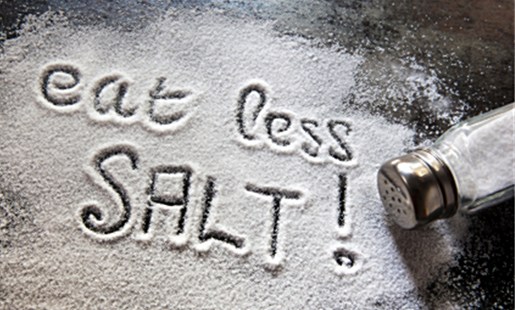Unfortunately, very few of us were allowed to keep the sensitive, discriminating
palates we were born with. I’m 100% certain if you served the food you eat
daily to a person who has never eaten salt before, they would spit it out right
away.
I cringe every time I read food labels and discover the amount of salt (Sodium
Chloride) added to processed foods. Kenyans are exposed daily to numerous
ingredients that have been proven by research to cause Non-Communicable
Diseases and the fact that the ‘watch-dog’ bodies don’t seem to be doing
anything to change the situation makes the matter a thousand times worse.
International guidelines dictate an ‘Adequate Intake’ of 20–40 mmol
(460–920 mg) of sodium per day. This corresponds to 1.15–2.3 grams of salt.
The set ‘Upper Limit’ or maximum amount for sodium intake is 2300 mg per day
(corresponding to approximately 6 grams of salt). Well, let me make your
work easier, it is approximately 1 teaspoon of salt is approximately 4.2
grams. Intake above this level is regarded as likely to cause harm.
Sodium and Potassium are very important salts in the body. Excess sodium consumption
however raises your blood pressure. Potassium
on the other hand is the main mineral responsible for lowering the blood
pressure. This means that for your blood pressure to be normal, the blood
levels of potassium and sodium must be at ‘normal’ levels.
Salt would rapidly be fatal if the kidneys could not excrete it as fast
as you eat it. The kidneys excrete salt (sodium) faster at a higher blood
pressure, and the ability of the kidneys to excrete excess sodium provides
powerful and life-saving protection against the accumulation of a dangerous
backlog of salt. High blood pressure unfortunately has a number of dangerous
long-term health outcomes, and greatly increases the risk of both stroke and
heart disease. (Australian National
Health and Medical Research Council) Continuously elevated
blood pressure or high blood pressure over a prolonged period is referred to as
Hypertension.
I have unfortunately not come across
research findings indicating how much sodium Kenyans are consuming. Considering
the increasing prevalence of Non-Communicable Diseases among Kenyans,
especially among young kids and the youth, it’s crucial for the Government to
fund not only research, but also a consumer behavior change communication
project specific to Food, Nutrition and Lifestyle Choices.
As always, I need to sing Kenya’s seemingly National Slogan, Government
regulatory bodies need to start doing their job. The Kenya Bureau of Standards,
Kenya Pharmaceuticals and Poisons Board and whoever else whose job it is to
regulate the local foods manufacturing and imports market, seriously need to be
fired or explain to Kenyans why Supermarkets are packed with foods that are
literally killing Kenyans.
I normally advise parents not to start adding salt (sodium chloride) to
baby food until way after 1 year, after which they still need to use a very
small amount, or even better, iodized herbal salt. You already eat Sodium in
your daily diet, so you don’t need to be adding too much of it in your food.
If you’re like me and your taste buds have been totally messed up over
the years by a consistent high intake of salt, simply substitute the normal
table salt with what most people refer to as Diabetics salt. It’s basically
sodium reduced sea salt, just ensure that it’s indicated on the container that
it’s Iodized to prevent goiter. Even better if you can, substitute normal table
salt with Iodized herbal salt; that way you’ll get additional benefits of healthy
herbs. Herbal salt may not be the best if you have ulcers or Hyper-Acidity due
to the added spices and herbs that might trigger acid production.
For any queries or Nutrition Consultation or a topic you would like me to
address, comment below or visit my Facebook page; www.facebook.com/StellarAfya or
email me on stllkimani@gmail.com.

No comments:
Post a Comment